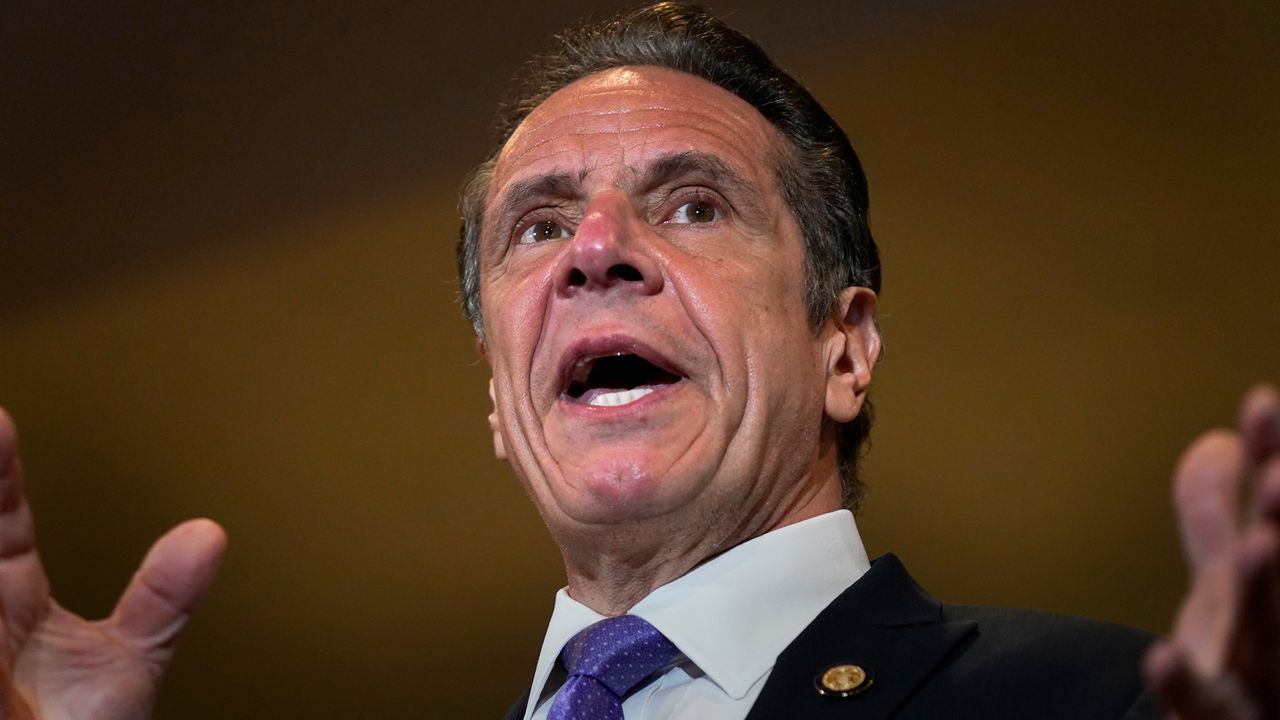In a major setback for Gov. Andrew Cuomo, the legislature is refusing to sign off on his MTA restructuring plan in the final days of the legislative session in the state capitol. The unusual defeat demonstrates how power has shifted dramatically in state government as the governor continues to deal with multiple scandals.
With just a few days left in the 2021 Albany legislative session, Gov. Andrew Cuomo was hoping to make a major change to the structure of the MTA, which oversees mass transit in New York City.
To do that, he needed the legislature to sign off on his plan and approve a bill. But on Tuesday, the Senate refused.
“First of all, it’s a very significant proposal to change the structure of the upper brass at the MTA, and it’s dropped on us at the 11th hour before session ends,” said State Senate Deputy Majority Leader Michael Gianaris. “There are significant concerns with consolidating even more power under the governor, considering how politicized the MTA has been.”
The specific change would have split the role of MTA CEO and MTA Board Chair. Right now, Pat Foye holds both titles. Cuomo’s plan was to appoint New York City interim Transit President Sarah Feinberg as Board Chair, and Cuomo ally and close confidante Janno Lieber as CEO.
Under the new proposed structure, the CEO would no longer be subject to Senate confirmation.
“Separating the position of the CEO and the chair, this was done in 2006 to 2009 and it was seen as a failure,” said Rachael Fauss of Reinvent Albany. “Richard Ravitch ran a commission that looked at MTA governance and tried to help the MTA get out of the then hole it had 2008 and 2009 after the Great Recession. And the Dick Ravitch report basically said it was ill-advised to separate the CEO and the chair.”
In addition, lawmakers raised concerns about Feinberg. She has gone on the attack against Cuomo’s political rival Mayor Bill de Blasio more than once, including most recently over a disagreement about whether there should be more police in the subways. Cuomo wants more cops, the mayor did not.
Critics say Feinberg is not supposed to use her official position for personal politics.
For now, Cuomo’s MTA restructuring is dead.
“No, I don’t believe any of that is happening before the session ends,” said Gianaris. “If they want to spend time in the off session trying to have a dialogue about what they want to do and whether it makes sense, we are always open to engaging in those conversations, but what is before us right now is not something we are interested in.”
Meanwhile, a criminal justice bill the legislature was going to pass Thursday, the last day of session, had to be pulled due to a technical error. Governor Cuomo can help out by issuing what is known as a “message of necessity” to waive the required three-day aging process for amended bills before they can be voted on. So some have proposed a compromise which would be that message in exchange for the MTA bill, but senate sources say that’s not going to happen.



